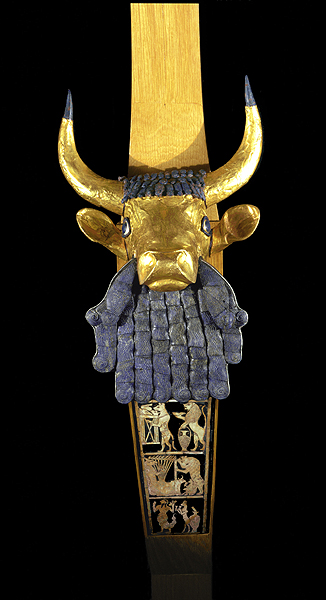Bull head, detail of the Great Lyre discovered in the Royal Tombs of
Ur, modern Tell el-Muqayyar, Iraq, dating back to about 2600 B.C., now
in the British Museum, London. The bull shows a thick beard, distinctive
tract of many human figures in Sumerian art. Indeed, the bull appears
frequently as an image substituting some divinity: for example, the
Moon god, Nanna (Akkadian Sin), the main god worshiped in Ur, was usually
represented in the shape of a bull, an image that perhaps represented,
through the sickle-shaped horns, the moon crescent (Jacobsen 2005).
[Image: http://joseph_berrigan.tripod.com/ancientbabylon/id13.html]


